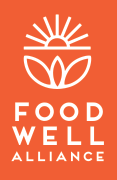Building sustainable local food systems that reflect the priorities of residents is critical as our region continues to develop. Cities can achieve this when they work with their communities to ensure access to nutritious food, preserve green spaces, and create opportunities to gather, learn, and grow together.
Formerly known as a “City Agriculture Plan,” a Local Food System Plan is a set of policy and program recommendations for a city to strengthen their local food system over the next 3-5 years. A Plan is developed through a collaborative process that builds community around local food and agriculture, formalizes a local government's commitment to prioritizing health and sustainability, and brings innovative ideas and valuable resources to cities.
Below are examples from past Plan recommendations that are focused around the program's five focus areas:
Expand Access to Fresh Local Food
Support Local Growers
Encourage a Supportive City Policy Environment
Promote Sustainable Practices
Increase Community Connection
Use the links to learn more about each focus area and explore examples of how strategies have been implemented in cities who have successful, active Local Food System Plans in our region.
Expand Access to Fresh, Local Food
Local Food System Plans recommend strategies to increase access to locally grown food within communities. Examples from past plans include:
Support new and existing Farmers Markets (Alpharetta Local Food System Plan, Recommendation A-2, Expand Farmers Market Partnership and Offer Doubled SNAP/EBT)
Pilot Mobile Market programs (Jonesboro Local Food System Plan, Recommendation B-4 Support a fleet of mobile markets)
Explore local food procurement partnerships with small businesses (East Point Local Food System Plan, Recommendation A-4, Develop a Healthy Corner Store Incentive Program)
Support Local Growers
Investment in local food systems' social and physical infrastructure builds capacity for growers of all experience levels.
Expand community gardens (East Point Local Food System Plan, Recommendation C-3, Leverage Public Land, Schools, Utility Easements, and Appropriate Private Sites for Growing Space)
Develop home growers networks (Austell Local Food System Plan, Recommendation D-2, Establish a Home Growers Network)
Host workshops and trainings (Alpharetta Local Food System Plan, Recommendation A-5, Provide Workshops, Trainings, and Education)
Encourage a Supportive City Policy Environment
The planning process provides an opportunity for local governments to co-create a vision for their food system alongside the community including supportive policy and zoning.
Form a Local Food & Agriculture Committee (Austell Local Food System Plan, Recommendation A-1, Create a committee of growers, residents, and city officials to align the City Agriculture Plan with a City Growth Plan)
Propose Economic Development incentives (Alpharetta Local Food System Plan, Recommendation D-4, Incentivize Food Businesses and Startups)
Review current zoning ordinance to encourage growing (East Point Local Food System Plan, Recommendation C-2, Conduct a Zoning Code Audit to Identify Potential Barriers to Urban Agriculture)
Promote Sustainable Practices
Plans address the full cyclical nature of local food systems and identify strategies for more resilient and sustainable practices.
Pilot community compost programs (Austell Local Food System Plan, Recommendation B-3 Pilot a community composting program at local garden space)
Support pollinator habitats (Alpharetta Local Food System Plan, Recommendation C-2, Support Pollinators and Pollinator Habitats)
Explore opportunities for water reclamation and reuse (Setting up a Rain Barrel Workshop)
Increase Community Connection
Food is a powerful tool for bringing the community together. Local Food System Plans can promote community connection by fostering opportunities to share knowledge and gather in spaces where food is grown and prepared.
Strengthen educational partnerships (Alpharetta Local Food System Plan, Recommendation D-1, Strengthen Educational Partnerships)
Expand local food and cultural events (Austell Local Food System Plan, Recommendation D-3, Pilot a community-wide festival at the Terrell Garden to educate residents about local food systems)








